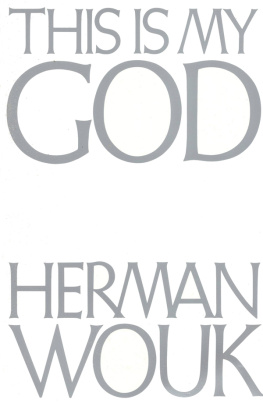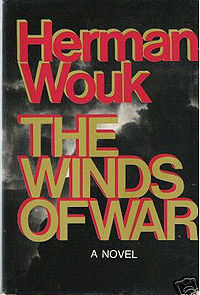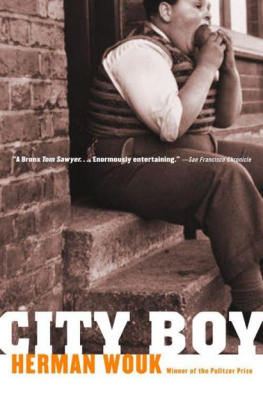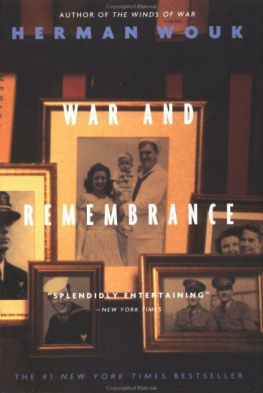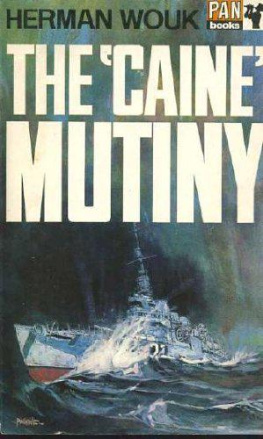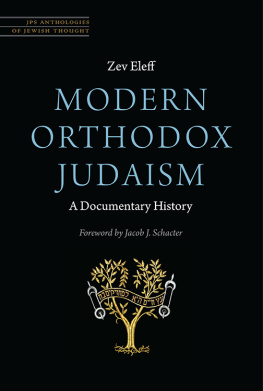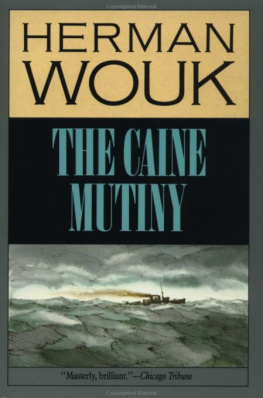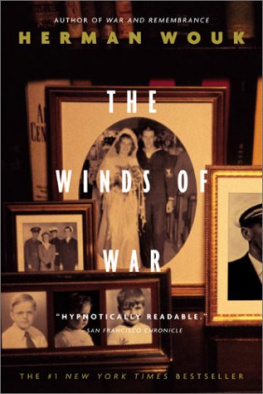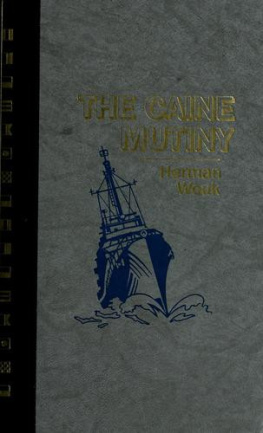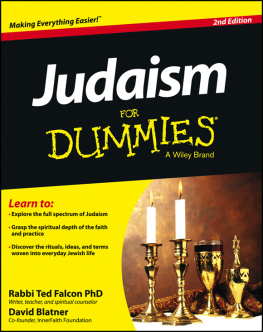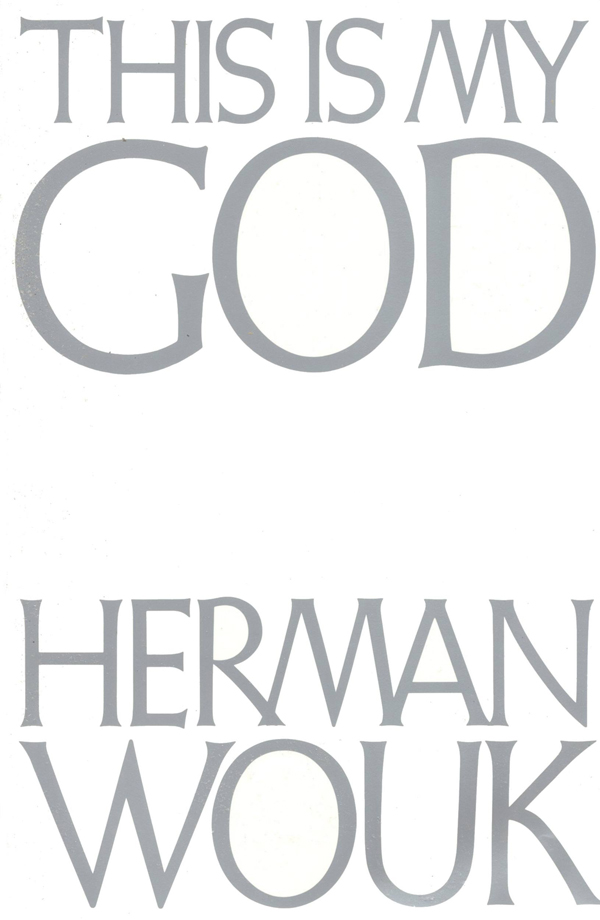Copyright 1959, 1970, 1974, 1988 by the Abe Wouk Foundation Inc.
Copyright renewed 1987 by Herman Wouk
All rights reserved. Except as permitted under the U.S. Copyright Act of 1976, no part of this publication may be reproduced, distributed, or transmitted in any form or by any means, or stored in a database or retrieval system, without the prior written permission of the publisher.
Back Bay Books / Little, Brown and Company
Hachette Book Group
237 Park Avenue
New York, NY 10017
Visit our Web site at www.HachetteBookGroup.com
ISBN: 978-0-316-05552-9
Works by Herman Wouk
Aurora Dawn
City Boy
The Caine Mutiny
Marjorie Morningstar
Youngblood Hawke
Don't Stop the Carnival
The Winds of War
War and Remembrance
Inside, Outside
The Hope
The Glory
This Is My God (nonfiction)
The Caine Mutiny Court-Martial (play)
This book is dedicated to the memory of my grandfather and teacher, Mendel Leib Levine, rabbi in Minsk, New York, and Tel Aviv. His lifetime of ninety-four years stretched from the last days of Abraham Lincoln to the first years of the nuclear era. He served as a Jewish jurist and minister under czarism and communism, in the freedom of America, and in the reborn land of Israel, where his bones lie.
The book with all its earnings belongs to a fund for charity and education established by my wife and myself in 1954, in memory of our first-born son, Abe.
Nobody can be more aware of the deep lacks in This Is My God than I am. The theme needs a prophet. The subject needs monumental scholarship. I offer the book, relying on the maxim of Rabbi Tarfon in Ethics of the Fathers:
The work is not yours to finish; but neither are you free to take no part in it.
HERMAN WOUK
I N 1959, when This Is My God first appeared, the new Jewish State was in its eleventh year of independence. Most Jews in other lands regarded it with sympathy, lent it charitable support, and kept their distance; a few Diaspora Zionists crusaded in vain for a mass return to the homeland; a few anti-Zionists loudly proclaimed that Israel had no claim whatever on their resources or loyalties. Such were the conditions in which this work was composed.
The twenty-second chapter of this book, entitled Israel, was accurate enough in 1959. Today it mainly shows, dated as it is, how amazingly the country has advanced in three decades. We live in a new Jewish era now. After the Six-Day War, I wrote a postscript to this book, The Ashes and the Gold, which recorded the way my own ideas were changing under the impact of Israel's struggles and triumphs. For this edition, I have further updated my picture of the Jewish State with an added essay, Israel at Forty: The Land and the Faith.
On rereading This Is My God, I find little else that I would alter. I have become more interested in Hasidism, but I remain essentially an admirer, rather than a participant, of that mystical sect. My knowledge of Yiddish literature has grown, and I am less pessimistic now about its survival. Modern Hebrew literature, too, interests me more. All in all, if I were to write it afresh now, the book would have a more intensely Jewish tone. In 1959 I was preoccupied with proving that an educated Westerner could live a traditional Jewish existence, not only without any intellectual sacrifices, but much to his enrichment. Today I take that for granted.
But This Is My God is written already. Its portrayal of what is timeless in the Jewish religion remains as accurate as I could make it. I am glad that I have received, in a large volume of mail from readers in many countries, no substantial correction necessary to the text. I am grateful to my publishers, Little, Brown, for bringing out the work in this handsome new durable format.
The success of This Is My God has been a satisfying reward for a labor of love. I planned the work for fellow Jews, perhaps a few thousand of them, who had an impulse to learn about the faith but lacked the time or the Hebraic grasp to study the sources. Instead, the book has found a place as an informal popular guide and reference work, for Jew and Gentile alike. Therefore, I have added a subtitle, The Jewish Way of Life.
There are many Jewish ways of life in this day and age. I know that well. In my book I describe them. But the departure point of all of them was and remains our ancient and living faith. The very name for the Mosaic Law in tradition is Halakhathe Way.
For those who are looking for that Way, and for those who are merely curious about it; for anyone who wants to know something clear and true about our eternal people, I wrote this plain book.
Herman Wouk
Palm Springs
15 March 1987
Purim 5747
THE REMARKABLE SURVIVAL OF THE JEWS
A Jewish friend of mine, a skeptic far removed from practice of Judaism or belief in itI must add, an admirable man with a keen mindone chill evening in November said to me rather shyly and casually, This may surprise you, but can you recommend to me any good reading matter on Hanuka? I think my son should know a bit more about his Jewish background than he does. With a sidelong glance of wry humor he added, Purely for culture, you understand, not for religion!
It is not often that anyone, even a prolix fellow like a novelist, sits down and writes a book in answer to an offhand question, but Im afraid that is what I have done here. Obviously the book was waiting to be put on paper; my friend's inquiry only precipitated it. I have wanted for some years to write an account of the Jewish faith.
Judaism has always been a strong interest of mine. It is part of my life and of my family's life. My two sons speak Hebrew, and are familiar with the Scriptures and with rabbinic literature. That is the way we live. With this background, I may be able to sketch the faith so as to give the interested reader information and pleasure, using what writing skill I have learned to keep from boring him with detail, or with my own not very relevant theories.
There are many Jews who do not observe the religion, who yet would like to know a lot more about it. There are non-Jews, too, who now and then grow curious about the old Hebrew faith. But the literature is so vast, it is usually so scholarly in tone, and so much of it is not in English, that such readers are often at a stand, not knowing where to begin. I offer this volume as a beginning.
Of course, one man's minimum information is another man's choke of detail. I have tried to steer a middle course. If scholars choose to glance at this book I hope they will not conclude, seeing all that I have left out, that my ignorance is equal to the omissions. Cutting has been much of my labor. I have had to write a short book about a subject that spans nearly all history, that fills whole libraries, that ranges across the classic problems of human life, and that causes turbulent many-sided controversy to this hour. The undertaking forced appalling compression.
God
There is no use in talking about religion with anybody who is sure that God does not exist. My book will irritate such a person and give him no light. I cannot change his mind, and I am not attempting it. But I suggest that agnosticism, when it becomes an ear-stopping dogma, may be as bad a mental handicap as superstition. There has never been any decisive proof either way about God's existence. Ours would be a decidedly queer world if the Creator of it were as visible as, say, a playwright at his opening night. Here is the universe, a dazzle of orderly wonders, which seems to imply a Maker. Here is human life, full of sadness and disaster and futility, ending always in black death; and it seems to many people to refute any notion that a God could exist. To assert anything about Godthat he is there or that he is not, that we can know him or that we cannotis to jump off into the dark, either way.

